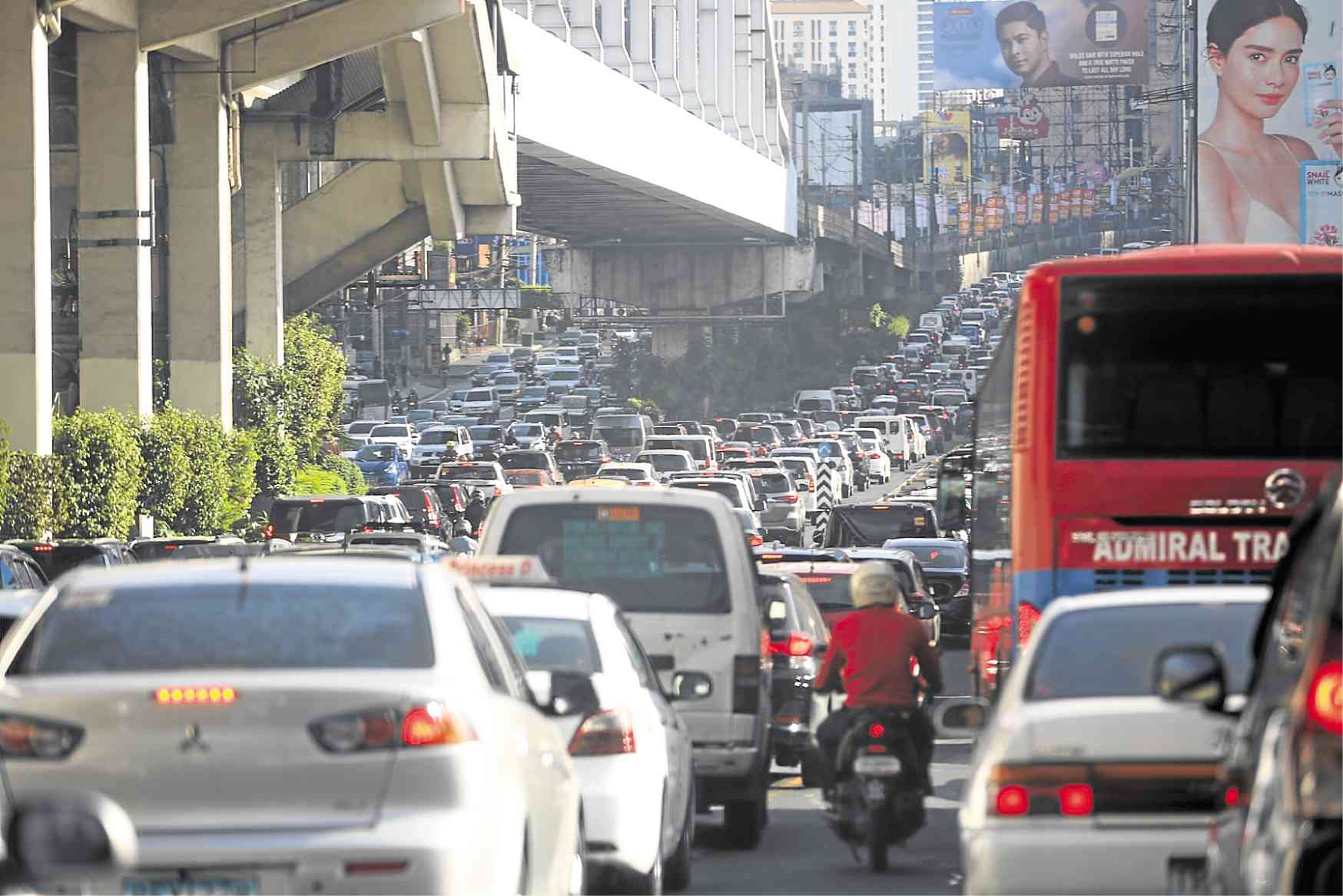
TRAFFIC BUSTER For Transportation Secretary Arthur Tugade, special powers are the solution to Metro Manila’s “carmageddon” problem. —NIÑO JESUS ORBETA
Transportation Secretary Arthur Tugade on Thursday made a fresh pitch to lawmakers for special powers to solve Metro Manila’s traffic woes, calling it a “unique solution” to a problem with no near-term options.
During the Department of Transportation’s (DOTr) budget deliberations at the House of Representatives, the proposed emergency powers bills that have languished in Congress for years were raised.
Aside from paving the way for Tugade’s designation as traffic chief or czar, the special powers would also allow the executive branch to implement ambitious and potentially controversial reforms such as taking over or amending existing public transport franchises, opening up to public use roads in private subdivisions, and reducing vehicles on Edsa.
Moreover, these initiatives will be protected from most court injunctions save for those issued by the Supreme Court.
“Because of the uniqueness of our situation, we need unique solutions,” Tugade said when Rep. Edcel C. Lagman warned the grant of traffic emergency powers might face opposition because it was not practiced in other countries.
Limited options
Tugade said the DOTr and other agencies have limited avenues to curb traffic in Metro Manila and other congested areas such as Metro Cebu.
He explained that the long-term solution was the completion of a host of railway and road infrastructure projects although these would take at least a few more years.
“We can solve traffic without the grant of emergency powers but it will be very slow. The administration might be over but we still wouldn’t be able to implement [these policies],” Tugade said.
In July, lawmakers filed new bills aimed at solving road congestion in Metro Manila and other busy urban areas. Road congestion alone costs the country billions of pesos daily in economic losses, the Japan International Cooperation Agency had said.
The Senate version, SB No. 213, was called the “Special Emergency Powers Act” while the House version, known as HB 559, was called the “Traffic Crisis Act of 2019.”
The House version grants these powers for a period of three years while the Senate counterpart grants two years.
Both will pave the way for the creation of a traffic management plan that will rationalize the routes of public utility vehicles such as buses and jeepneys, synchronize traffic rules and fees with local government units and clear sidewalks and illegal terminals.
Support from MMDA
In a forum with the Inquirer staff on Wednesday, officials of the Metropolitan Manila Development Authority (MMDA) said the agency would benefit from the grant of emergency powers.
Apart from fast-tracking procurement and right-of-way acquisition for infrastructure projects, special powers would also allow the designated traffic czar to implement sweeping reforms, including the MMDA’s pet policies like the ban on driver-only vehicles or the provincial bus ban on Edsa, without fear of court injunctions. —WITH A REPORT FROM KRIXIA SUBINGSUBING